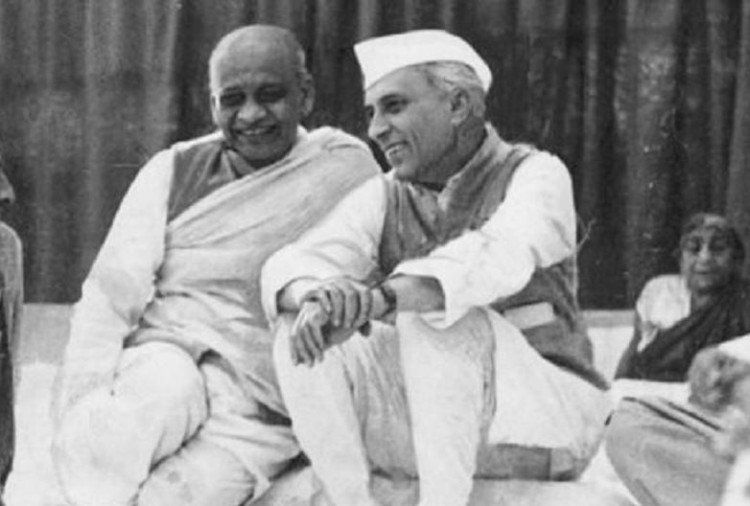Sardar Patel: The Iron Man of India

- Dr. Chander Mohan Negi
Sardar Vallabhbhai Patel, the iron man of India, was born on October 31, 1875, in Nadiad, Kheda district of Gujarat. He was a successful barrister, a Senior Congress leader and one of the prominent figures of India’s freedom struggle movement. A staunch congressman, the first deputy Prime Minister of India, Sardar Vallabhbhai was a true Gandhian who was committed to the unity and integrity of India. He played an exemplary role in the integration of 565 princely states to the union of India and was proudly regarded as the Iron Man of India. Recently, Sardar Patel, in a very calculated and fabricated manner, was projected to be anti-Nehru and a seamless campaign was unleashed to project Pt. Nehru as his adversary. But the history says otherwise, both Pt. Nehru and Sardar Patel were the right and the left hands of the Congress Party and their commitment to democracy, secularism and integrity of the country was unparalleled. In the current situation when the ‘idea of India’ is under fierce attack and a charged communal environment is hovering over the country; imposing threat to the integrity of the country. The farmers have been protesting the three contentious farm laws and the government is least bothered to talk to them; let alone solving the problems of the farmers. The life and principles of Sarder Patel become pertinent in this environment of hatred and insensitivity against which he stood firmly and vehemently throughout his life. After completing his education in England, he returned to India and settled in Ahmedabad and became one of the city’s most successful barristers. He was not keen to join add politics at the early stages of his life but his meeting with Mahatma Gandhi in 1917 in Godhra changed his life fundamentally. On Gandhi’s call, Patel quit his hard-earned job, joined the Congress party and joined the movement to fight for exemption of taxes in Kheda at the time of plague and famine (1918). During the Non-Cooperation Movement (1920), he actively participated and recruited 3 lakh volunteers to the Congress Party and collected a sum of Rs. 1.5 million for party fund. When Gandhi ji was imprisoned in 1923, it was Sardar Patel who led the Satyagraha against the British law of banning the hoisting of India’s flag.
Sardar Patel became the household name after the Bardoli Satyagraha (1928) which earned him the title of ‘Sardar’. He was so much in fame at that time that Pandit Moti Lal Nehru suggested his name to Mahatma Gandhi for the Congress President. He was arrested and put under trial in 1930 during the Salt Satygraha. In 1939, Patel supported Pt. Nehru’s decision to withdraw the Congress from Central and Provincial legislatures. During Quit India Movement (1942), the British arrested Patel. He was imprisoned with the entire Congress Working Committee from 1942 to 1945 at the fort in Ahmednagar. He was elected President of Congress for the Karachi session in 1931 after the Gandhi -Irwin pact. He advocated for the establishment of a secular nation. Minimum wages for workers and the abolition of untouchability were among his other priorities. Patel used his position as Congress President to organize the return of confiscated land to farmers in Gujarat. He worked extensively against alcohol consumption, untouchability, caste discrimination and for women emancipation in Gujarat and outside. He was an ardent supporter of Hindu –Muslim unity and firm believer in secularism.
As the first Home Minister and Deputy Prime Minister of India, he was the principal architect to integrate the 565 princely states in the Union of India. Pt. Nehru, while paying tribute to Patel for his yeoman service to country despite his advanced age and ill health, called Sardar Patel “The Builder and Consolidator of New India”.
Nehru and Patel was a rare combination. They complemented each other. The two giants of Indian National Congress had mutual admiration and respect. There were differences in approach – but end goal for both was to find what is best for India. Nehru and Patel jointly played a decisive role in the making of Independent India. Those who want to create a division between the two great leaders of the Indian National Congress must not forget that the disagreements and rivalries are part of healthy debate and political process and democracy deepens by discussions, debates and dissents. The Indian National Congress has a history of working under the democratic framework; and differences of opinion are welcomed in the party.
Unfortunately, today the misguided right wing writers are posing Patel and Nehru as rivals and projecting one as hero and the other as villain. Rather, the two giants of Congress in the words of Ram Chandra Guha, were comrades. They are trying to hijack Patel’s legacy as they had acute shortage of icons. If Sardar Patel were alive today, he would have never endorsed the kind of situation prevailing in the country where long-trusted Hindu – Muslim unity is at stake. He might have never approved the kind of treatment meted out to the protesting farmers by the Government. He was a Son of a farmer and he fought for the farmer’s cause. Kheda Movement, Bardoli Satyagraha are few examples of his dedication for the cause of farmers. He blamed Hindu Mahasabha for the assassination of Mahatma Gandhi and banned RSS for one year. He was committed to secularism and was a firm believer in the Hindu-Muslim Unity.
The Author is a Senior Assistant Professor in Economics, Deptt. of Finance and Business Economics, University of Delhi South Campus.







